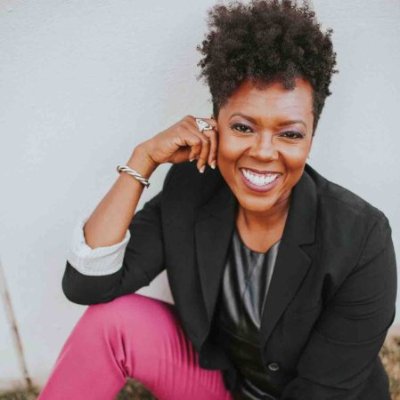Leadership Courage
Leading people is a paradoxical feat. We say we want one thing from leaders and then ask for something else altogether that seems contradictory. Leading is a balancing act. It is finding balance between the needs of the people and the needs of the organization. It is accelerating decision-making but being collaborative (which can be slow). It requires that you are empathetic and compassionate while holding people accountable to their goals. Leaders regularly get confused and overwhelmed and wonder where to start. According to Bill Treasurer, the author of Courage Goes to Work, you should start with courage. I couldn’t agree more!
Managerial courage – it’s usually associated with making tough decisions or having crucial conversation during difficult circumstances or with difficult people. According to Korn Ferry Leadership ArchitectTM some of the reasons people have lower skill in this area are because they fear being wrong, fear losing, fear getting emotional or fear being out in front. Almost all of the cited reasons revolve around fear.
True courage is understanding that it is natural to feel fear as an emotion. It is also important to know that when we are afraid we often exaggerate the possible outcomes. We misjudge the probable dangers and underestimate the potential rewards of stepping forward and doing it scared. Fear, in essence, is interference. It is getting in the way of leaders doing the things that stand to improve business outcomes and increase workplace engagement.
Korn Ferry almost makes me sad when they also share that not only is courage in low supply and that leaders generally are unskilled in the courage competency; it is much harder to develop courage muscle.
Almost!
Courage, just like anything else, is a teachable and learnable skill. And as one of my favorite leadership coaches Alan Fine professes, we all have the capacity to improve our level of performance. Courage is not excluded in that statement. People have the capacity to be courageous. Our job is to remove the interference that fear causes by
- taking a look at our personal courage history
- learning how to remove the interference related to fear
- understanding our own purpose and values so we can align to the things that matter most to us.
Our current times are calling for courageous leaders who will stand up and stand out for attempting to understand the basic human condition of falling short sometimes. This is a compassionate leader who thinks first about how he or she can take an additive approach that is helpful. It will require that you do it scared sometimes but the benefits far outweigh the risks.
About the Author
 Nicole Price understands that if leadership is anything, it is personal, and that everyone can be a great leader. So she gets personal. Nicole’s transparency allows others to learn from her mistakes and helps them avoid the same pitfalls. She gets real. She will tell you, yes, having differences within a team can be harder, but that hard work can really pay off — both professionally and personally. And she gets wise. She’ll tell you, in a heartbeat, how she’s gotten a few things wrong over the years, but a little grace and some solid coaching saved her.
Nicole Price understands that if leadership is anything, it is personal, and that everyone can be a great leader. So she gets personal. Nicole’s transparency allows others to learn from her mistakes and helps them avoid the same pitfalls. She gets real. She will tell you, yes, having differences within a team can be harder, but that hard work can really pay off — both professionally and personally. And she gets wise. She’ll tell you, in a heartbeat, how she’s gotten a few things wrong over the years, but a little grace and some solid coaching saved her.
Through leadership development, coaching, consulting, keynotes, and other resources, Nicole encourages and enables others to live their lives in excellence. Her energetic and engaging sessions leave participants with strategies and specific tools that they can apply right away. Her lively presentation style garners rave reviews and, very often, an invitation to return. Nicole received her B.S. in chemical engineering from North Carolina A&T University and her master’s degree in adult education from Park University.
Bloch Executive MBA Alumni Feature: Denise Buffington
While in China during the Global Residency, Denise Buffington (Class of 2016) and her fellow female colleagues in the class of 2016, decided to launch a book club to stay connected after graduation. The primary goal of their book club is provide a place where members can discuss issues and opinions in a supportive environment, similar to the cohort experience during the Executive MBA program.
Members can make recommendations for which books to read, and they alternate between fiction and non-fiction. Book selections to date have featured Lean In: Women, Work and the Will to Lead by Sheryl Sandburg, Go Set a Watchman by Harper Lee, and Presence by Amy Cuddy. Denise brings discussion guides (often available online) to spark group conversation around key themes from the reading.
To accommodate busy schedules, they meet quarterly and members who are unable come in person are encouraged to join the meetings virtually. Throughout the program Denise, the Director of Energy Policy and Corporate Counsel at Kansas City Power & Light, earned a reputation for organization that is reflected in the Book Club Charter she created to provide a basic sense of social order for the club.
If you’ve ever thought about starting a book club or think this might be a good idea for your cohort, you can find Denise’s recipe (the Book Club Charter) below:
BOOK CLUB CHARTER
- Participation. Members who have not read the book – come anyway! Not everyone can finish every book, but not readers my still have valuable insights. Additionally, this group is as much a professional networking club as it is a book review/exchange club.
- Group Size. Please feel free to invite other professional women that might be interested in participating. We currently have 7 members. We could expand to approximately 12-15 and still be manageable so everyone should think about inviting a friend.
- Non-Fiction/Fiction. We will alternate non-fiction and fiction. This rule can be waived if the majority of the group has a strong preference for a book.
- Timing. We plan to meet approximately every 3 months.
- Book Selections. Please send 2-3 book selections to Denise. The objective is to compile a list for the next year or two. If you don’t like a particular book, as noted above, you do not need to read it participate!
- Discussions. There is never one way to experience or interpret a book. When there are disagreements about the book, be gracious! Differing opinions make better discussions. Try to avoid words like “awful” or “idiotic” or even “like” or “dislike.” These types of words do not move the discussion forward and can put others on the defensive. Instead, talk about your experience — how you felt as you read the book.
- Leader. The person that suggests the book we are reading should be prepared to start and lead the discussion (or delegate the responsibility).
- Limits. We did not set limits on paperback vs. hardcovers or pages, but try to keep the books around 400 pages so that it remains manageable for everyone to finish the book.
